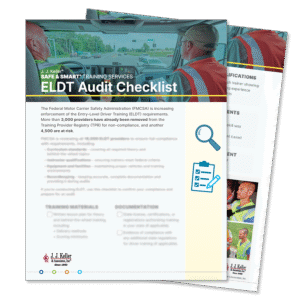U.S. sales of new Class 8 trucks declined in April, according to data received from ACT Research. Sales of 19,714 trucks were 12.4% lower than the 22,512 sold in March. The March number, however, may have been artificially high due to February’s bad weather, which could have delayed some deliveries until the following month.
Compared to April 2020, Class 8 truck sales increased by 51.8% over last year’s 12,965.
Of the trucks sold, 14,347 were road tractors (72.8% of the total), and 5,367 were vocational trucks equipped with dump, trash, concrete or other bodies. That’s a significant difference from April 2020, when more than a third (37.2%) of Class 8 trucks sold were vocational. Freight levels at the time were free falling due to COVID-19 shutdowns, slowing sales of new tractors.
For months there have been predictions of production slowdowns due to shortages of various parts and materials needed to manufacture new trucks. With April sales nearing 20,000 units, it might appear that the industry is doing fine.
Not so fast, said Kenny Vieth, president and senior analyst for ACT. “We should be on our way to building 30,000 trucks in a month,” he said.
The year 2006 saw record Class 8 sales for the trucking industry. Wards reported sales of 284,004 in that year, an average of 23,667 per month. The Wards report, however, excludes some manufacturers of vocational trucks used for delivery of concrete, trash collection, firefighting and applications such as truck-mounted cranes, making total production numbers higher than reported.
Vieth explained where the trucks are coming from.
“We have seen inventories continue to creep down,” he said. “The Class 8 inventory in April, on a North American basis, is at 39-month low 49,800 units.”
It’s evident that some of the new trucks being sold are coming from OEM and dealer inventories rather than hot off the assembly line. As inventories dwindle, new trucks are harder to find — and more expensive to buy.
Shortages of parts and commodities may not have had much impact on April production, but don’t be fooled.
“Every month, it’s something else hitting the fan,” Vieth said. “In January, it was chip (semiconductor) shortages. In February, it was plastics.”
As the deep freeze of Winter Storm “Uri” caused power outages in much of the state of Texas, plastics manufacturers were forced to shut down, according to Plastics News. Sudden shutdowns can result in molten plastics solidifying in lines and machines, resulting in considerable time being needed for restart. The end result is that manufacturers of plastic products destined for new truck builders experienced difficulty obtaining materials.
Then, there’s steel. Prices for steel have increased by more than 40% since the year started and remain at record levels. Just as worldwide production was ramping up, India, the world’s second-largest producer, shut down steel production as oxygen used by the plants was diverted to hospitals to treat a massive surge in COVID-19 cases.
Shortages typically result in higher prices, which are often passed on to consumers. On May 11, Reuters reported that ArvinMeritor, a supplier of auto and truck parts, would begin charging a monthly surcharge to help offset surging steel prices. It’s highly likely that truck manufacturers will again impose a commodity price surcharge in the near future, as they did during the recovery from the Great Recession of 2008.
Truck orders actually declined in April, coming in at 33,600 — down 16% from March but still more than OEMs can build in a month. The backlog is now approaching 10 months at current production levels as 2021 building slots are nearly gone. If the build rate slows further due to parts shortages, it will take even longer to clear the backlog.
Those planning on turning to the used truck market to avoid new truck prices are likely to be disappointed, too. ACT Research’s “State of the Industry: U.S. Classes 3-8 Used Trucks” release reported that sales of new trucks in April were 51% higher than a year ago, and average prices were 45% higher than on the COVID-depressed market of 2020. Prices rose 5% over the March average.
Among the individual OEMs, all except Mack Truck sold fewer Class 8 trucks in April than in March, according to data received from Wards Intelligence — 1,649 Bulldog brand trucks were moved in the month, 16 more than in March and 586 more than in April 2020.
Volvo’s 1,934 sold in April lagged 540 trucks behind March sales of 2,474, a 21.8% decline.
International sold 2,192 Class 8 trucks in April, down 102 (4.4%) from March sales.
Kenworth sales of 3,005 were down by 35 from March for a 1.2% decrease, but were 715 trucks (31.2%) better than April 2020 sales.
Peterbilt sold 2,990 in April, down 191 trucks (6%) from March.
Freightliner sales declined by 1,774 trucks in April, a drop of 20.1%, but it’s important to note that March was an exceptional month for the company with 8,839 trucks moved.
Western Star sold 477 in April, down 27 (5.4%) from March sales.
Market share for the OEMs hasn’t changed much. To date, Freightliner has 40% of U.S. Class 8 sales, up 3.1% from 36.9% at the same point last year. Peterbilt’s 15.3% is next, up 0.5%, followed by Kenworth’s 13.7% which is down 2.1% from the 15.8% of the market last year.
International has also dropped market share. This year, 10.5% of the Class 8 trucks sold were Internationals, compared to 12.5% at the same point in 2020. Volvo has picked up 1.5% of the market and sits at 10.6% for the year to date. Mack dropped 0.3% of its share, from 7.8% at this time last year to its current 7.5% of the market.
For at least the next few months, trucks will be harder to find and more expensive when found. Strong freight rates may provide incentive to pay more for equipment, but current owners may decide to spend to keep their current stock running a while longer instead of trying to replace it.
Cliff Abbott is an experienced commercial vehicle driver and owner-operator who still holds a CDL in his home state of Alabama. In nearly 40 years in trucking, he’s been an instructor and trainer and has managed safety and recruiting operations for several carriers. Having never lost his love of the road, Cliff has written a book and hundreds of songs and has been writing for The Trucker for more than a decade.















Elections have consequences